 José Manuel Barroso was a student revolutionary while growing up in Portugal. His other middle name – Durão – even means hard. That he is now 53 and the centre-right president of the European Commission, could be viewed as the well-worn dilution of incendiary youthful ideals. But it doesn’t make it any less odd that while Mr Barroso was holed up in London’s Docklands hammering out the G20 communiqué with world leaders this week, his eldest son Luís, 25, was among the protesters on the streets of the City of London angered by the excesses of capitalism.
José Manuel Barroso was a student revolutionary while growing up in Portugal. His other middle name – Durão – even means hard. That he is now 53 and the centre-right president of the European Commission, could be viewed as the well-worn dilution of incendiary youthful ideals. But it doesn’t make it any less odd that while Mr Barroso was holed up in London’s Docklands hammering out the G20 communiqué with world leaders this week, his eldest son Luís, 25, was among the protesters on the streets of the City of London angered by the excesses of capitalism.
Mr Barroso told the story in his usual light and amiable way. His son, who is studying European law in London, was not protesting though he was with protesters, he said. In any case, the son was rather more right-wing than the father at a similar age. “I don’t know why my son was born conservative,” he joked. “I was a radical.”
Perhaps Luís, like everyone else, is converging on a view of the world as espoused by the European Union, at whose centre sits his father. Mr Barroso, while conscious of the need to appear modest, was clearly delighted that from either end – the Russians and Chinese on one side, the Americans on the other – the G20 nations were coming together in their vision of the global economy.
“We need open, competitive, market economies… but at the same time with effective regulation and supervision,” he told The Daily Telegraph in his first newspaper interview since the G20 summit. That, combined with “an important level of social commitment, strong international institutions and mechanisms of corporate governance… is the economic culture of Europe”.
Of course this convergence, as expressed in large parts of the G20’s final communiqué, is driven by a world experiencing its greatest economic crisis in decades. Globalisation, which has lifted millions from poverty, has also spread misery everywhere as economy after economy has tipped into recession. The blackest eyes are being worn by the US and UK, whose versions of what Mr Barroso called “unbridled capitalism” seemed to have made matters far worse than they might have been.
The outside world has been focused on the pronouncements of international leaders – press conferences by Nicolas Sarkozy, the president of France, or Barack Obama, US president. The polticians have had in mind domestic audiences and the need to appear to be fighting for their national interests. Angela Merkel, the German chancellor who is facing an election this year, has been stridently opposed to US and UK calls for a larger fiscal stimulus for her economy, even while injecting more money into it than any other country in Europe.
But as all the nations move towards a common vision of the future global financial system, Mr Barroso and his team have had a quiet but immensely influential role in the whole process.
Many of the words adopted by the G20 were drafted in his office. Much of the thinking on the future of financial regulation came out of a European Commission report on the subject.
“If you look at the conclusions of [the Commission’s] spring council one week ago and the conclusions of the G20, you will find they are [almost the same]… word for word,” he said.
Now the Commission has been given the task of drafting proposals on executive pay, hedge fund regulation and private equity. It will make plans for a new global financial architecture and it will host a summit on job creation next month in Prague. Though there will be months of negotiation to come, and numerous attempts by politicians to steal credit and publicity, Mr Barroso’s office will be writing many of the drafts.
It could have been very different. When the crisis seemed completely out of control at the end of last year, a rash of unilateral measures by members of the EU seemed to call into question the whole single market project.
Mr Barroso admitted that in December there had been a “quasi-panic”. The UK, Ireland and other countries had announced huge bail-outs of their banks, and shown no signs of worrying about infringing EU rules on competition and budget deficits. There was talk of the need to give huge amounts of aid to car companies. Mr Sarkozy was openly hostile to the Czech Republic, to which he had just handed the EU presidency.
Brussels had to make countries understand that “internal protectionism in Europe would be deadly, really a disaster for European economies”, Mr Barroso said. “The internal market is the bedrock of our prosperity.”
He maintained on Friday that the message had been taken in. “Oh, we have done it. It is well understood… Now after a good debate I see a real commitment.” He said that an informal summit last month had actually handed more authority to the Commission. Some Eurosceptics, he said, had come round to the view that the “real threat is not an overcentralised Europe, [but] the fragmentation of the internal market”.
Of course critics could argue that Mr Barroso would say that. But it is true that governments could look at the strict EU rules on budgets and acknowledge their role in allowing billions to be poured into ailing economies. Government budget deficits in the EU’s 27 countries fell from an average 2.9pc in 2004 to 0.9pc in 2007, putting them in a better position to combat the crisis when it struck.
Another important lesson would have been the different experiences of Iceland and Ireland, which were both hugely over-extended in the years of cheap credit. Iceland, outside the eurozone and the EU, had gone bankrupt amid the crisis. Ireland, while still in considerable pain, had not. “Ireland would be in a situation of near bankruptcy if it had not been in the euro,” said Mr Barroso. “It had a credible currency [unlike Iceland] and benefited from massive injections of liquidity from the European Central Bank.”
Some commentators say the euro is still in trouble, and that countries could still come under enough economic pressure to force them out of the currency. EU and non-EU members in eastern Europe have experienced political upheaval and changes of government. But Mr Barroso said that, far from seeing a break-up of the euro, he had been asked by countries wishing to speed their entry into the currency, such as Denmark.
He admitted that the G20 had much work left, in particular on world trade, which will see a reduction in its volume in 2009 for the first time in 25 years. Mr Barroso said that the World Trade Organisation had made a presentation to the G20 in which it stated that rising protectionism had not yet had a significant impact on trade volumes. Reading between the lines of the communiqué, it seems as if restarting the Doha round of trade negotiations will be top of the agenda when the G8 group of largest economies, and several guests, gathers near Sardinia in July.
Another item barely on the agenda, Mr Barroso admitted, was discussion of the macroeconomic imbalances that had created much of the world’s economic problems. Countries such as Germany and China have become overdependent on being able to sell their exports to countries too eager to consume, such as America. The broken financial system with its excessive risk-taking and inadequate oversight, arguably, merely made the crisis worse rather than created it.
Mr Barroso said that he thought China and Germany had recognised the need to lessen their dependence on exports. “I think the Chinese are moving in the right direction… Germany is completely aware that it is important not just to rely on exports.”
But he admitted that economic culture stood in the way of permanent reform. “If you give a tax reduction in Germany most people will save it and not use it to stimulate their consumption.” Miss Merkel has acknowledged that Germany’s economic structure cannot be changed quickly.
Mr Barroso was therefore cautious in his assessment of the summit, steering clear of talk of green shoots and recoveries. Millions more are still expected to be added to the jobless numbers throughout the world. “We cannot expect a miracle from the [G20] summit but I think we took the right decisions and I think we should concentrate on implementation and co-ordination of the measures. Then we can see the light at the end of the tunnel.”
José Manuel Durão Barroso
Born Lisbon, March 23, 1956
Family married to Margarida Sousa Uva. The couple have three children: Luís, Guilherme and Francisco.
Education University of Lisbon, Diploma in European Studies at the European University Institute, University of Geneva, Master’s degree in Political Science, University of Geneva
Adrian Michaels
sursa: telegraph.co.uk


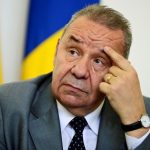

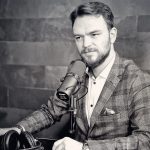


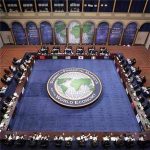

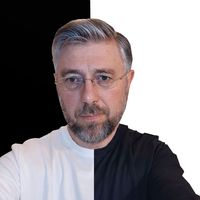
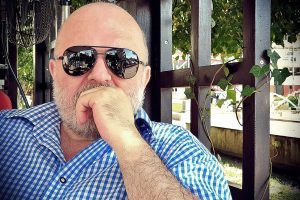
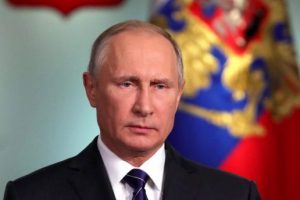
Adauga comentariu